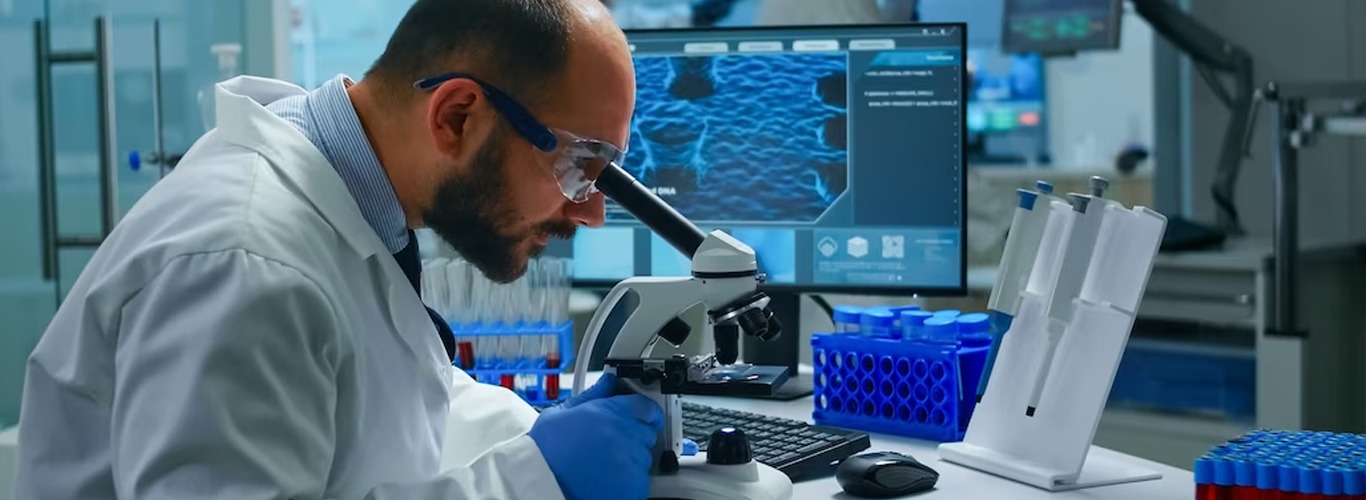What is the future of Biomedical Engineering in India?
Posted on 02/06/2025

Biomedical Engineering is the study of Medical Sciences and engineering. The students who pursue this course are not only trained in the principles of Biomedical Engineering but also medical sciences. They are trained to develop biomedical solutions through designing and manufacturing devices, apparatus and medical equipment’s. It has been a rapidly evolving field in recent years, with constant breakthroughs in medical technology and innovation. This field has contributed to the development of lifesaving medical devices, surgical techniques, and imaging tools that have transformed the healthcare industry.
The medical and healthcare sector in India is developing quickly thanks to technological developments and rising demand for high-quality care. Biomedical engineers are a novel type of professional as a result of this. To identify, treat, and avoid diseases, they are in charge of creating new tools and technologies. This piece examines the promising future of biomedical engineering in India and the lucrative job opportunities in this field.
Biomedical engineers have a great chance to create goods and solutions that can improve healthcare delivery due to India's expanding healthcare industry. There is a sizable pool of gifted engineers in India who can be taught to work in this industry.
More chances for biomedical engineers are being created thanks to the Indian government's significant investments in research and development in this field. For those who want to combine their love of engineering with their interest in medicine, biomedical engineering presents an intriguing career choice.
Graduates from this field can find employment in a variety of places, such as manufacturing plants, hospitals, research centres, and laboratories. These experts are employed by pharmaceutical companies and government agencies to create tools that benefit doctors and patients. According to a study, employment rates for biomedical engineers are projected to rise by 10% between 2023 and 2035, compared to other engineering specialties.
What Qualifications Are Needed For A Profession In Biomedical Engineering?
Education: To become a biomedical engineer, you will need to earn a Bachelor's degree in biomedical engineering or a related field, such as electrical or mechanical engineering. Some universities also offer Master's and Ph.D. programs in biomedical engineering for those who want to pursue advanced studies.
Technical Skills: They need to have strong technical skills, including a solid understanding of engineering principles, as well as knowledge of biology and medical science. They should also have proficiency in computer-aided design (CAD) software, programming languages, and other technical tools.
Problem-Solving Skills: They must be able to identify and solve problems related to medical devices and equipment. They should be able to work with a team of scientists, researchers, and medical professionals to develop innovative solutions to medical problems.
Communication Skills: They can be able to communicate complex technical information to a variety of audiences, including scientists, medical professionals, and patients. They should be able to write reports, research papers, and grant proposals, as well as give presentations to a variety of audiences.
Licensing and Certification: Some states in the U.S require biomedical engineers to obtain a professional engineering (PE) license before they can practice. Certification from professional organizations, such as the American Society of Mechanical Engineers (ASME) or the Biomedical Engineering Society (BMES), can also be helpful in demonstrating expertise in the field.
What are the areas of specialization in Biomedical Engineering?
Nanotechnology
They have also made significant advancements in the field of nanotechnology, with the development of tiny particles that can deliver drugs directly to cancer cells or other diseased tissues. These nanoparticles can be programmed to release drugs at a specific time, ensuring that the patient receives the required medication at the right time.
Tissue Engineering
Tissue engineering is a rapidly evolving field that involves the development of artificial tissues or organs to replace damaged or diseased ones. Biomedical engineers are working on developing tissues and organs that can be transplanted into patients without the risk of rejection. These tissues and organs can be grown using the patient's cells, reducing the risk of rejection and improving the success rate of transplantation.
Medical Devices
These devices range from simple blood glucose meters to complex MRI machines. These devices are designed to help in the diagnosis and treatment of various medical conditions. Some examples of these devices include pacemakers, insulin pumps, and artificial limbs. Biomedical engineers have also developed wearable devices that monitor vital signs such as heart rate, blood pressure, and oxygen levels.
Biomechanics
Biomechanics is a field of biomedical engineering that studies the mechanical properties of biological systems. Biomedical engineers use this knowledge to develop prosthetics and orthotics that mimic the natural movement of the body. They also work on improving the design of medical equipment, such as wheelchairs and hospital beds, to reduce the risk of pressure ulcers and other injuries.
Medical Imaging Techniques
The medical imaging deals with designing and developing devices that allow examining the human body from the inside. This aids in a proper and quick diagnosis of a certain body organ. There are various imaging techniques such as magnetic resonance imaging (MRI), computed tomography (CT), and positron emission tomography (PET) that allow doctors to diagnose and treat patients more accurately. With the advancements in artificial intelligence (AI), the images generated by these techniques can be analysed faster and more accurately, leading to better diagnosis and treatment plans.
In conclusion it has made significant contributions to the healthcare industry, and the advancements in this field have the potential to transform the future of healthcare. With the development of new medical technologies, surgical techniques, and imaging tools, patients can receive more accurate and personalized treatment plans. As biomedical engineering continues to evolve, we can expect to see even more significant advancements in the years to come.

